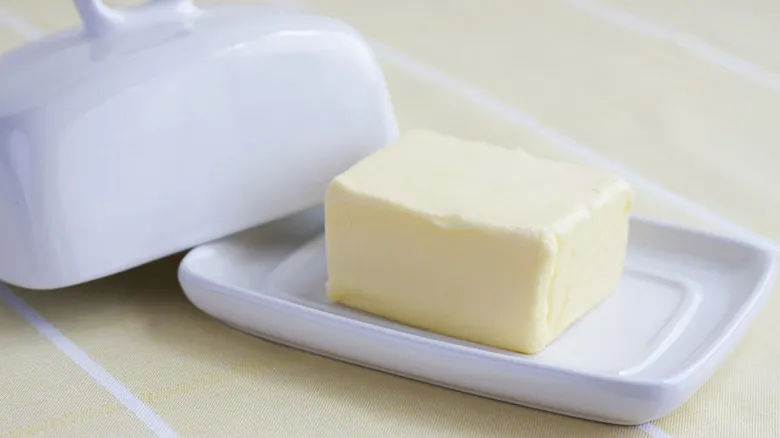How to store butter at room temperature

When it comes to storing butter, it's important to do more than just prevent mold. Butter can become rancid, pick up surrounding flavors, or even lose its taste if not stored correctly. If you don’t have a butter bell or a covered butter dish, a small airtight container will suffice. Avoid using aluminum foil, as it can actually accelerate spoilage.
Salt acts as a preservative, so salted butter can be kept at room temperature longer than unsalted butter. The duration depends on the salt content, but generally, salted butter can last up to 30 days, while unsalted butter typically lasts around two weeks. Some people prefer not to leave unsalted butter out for more than a couple of hours to soften for baking, as they usually don’t use it as a spread. Whipped butter, on the other hand, should not be left out for more than an hour due to its increased perishability from the air incorporated into it. Additionally, unpasteurized butter must always be refrigerated. Be sure to read labels at the store to choose the best butter.
Butter also has a longer shelf life outside the fridge in moderate temperatures. If your kitchen stays around 70 degrees Fahrenheit or cooler, your butter can last closer to the 30-day mark, unlike if it’s exposed to direct sunlight from a large bay window. It’s also wise to keep smaller quantities of butter out to reduce waste. Regularly check the butter, especially before using it. If it has an off smell or appearance, it’s best to err on the side of caution and discard it.
Recommended

Do You Actually Need To Store Pickles In The Fridge?

Are Radish Greens Edible?

Why You Should Never Serve Frozen Chocolate Truffles

The Right Way To Store Fresh Produce Together
Next up





